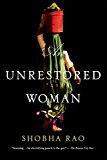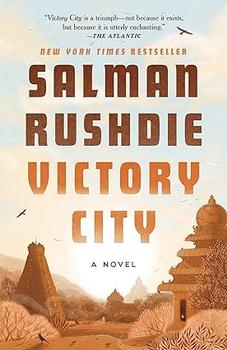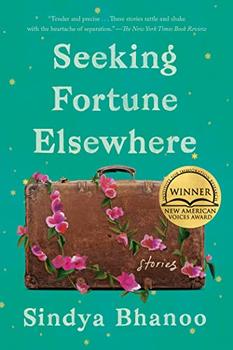Summary | Excerpt | Reading Guide | Reviews | Beyond the book | Read-Alikes | Genres & Themes | Author Bio

On August 15, 1947, the British pulled out of India after eighty-nine years of Colonial rule. In their haste to leave, they agreed to demands by the All India Muslim League (a political party led by Muhammad Ali Jinnah) and partitioned the territory into two countries —India and Pakistan — along an ill-conceived and carelessly drawn boundary known as the Radcliffe Line. Partition resulted in the displacement of approximately 15 million people and roughly one million deaths, as masses fled the resultant explosion of violence between Hindus, Sikhs, and Muslims. (See Beyond the Book.) The twelve stories in Shobha Rao's debut collection, An Unrestored Woman, circle outward from the event of Partition like ripples from a stone thrown into a lake. In breathtaking, expansive prose, she reveals the devastating effects of Partition that still reverberate today, crossing the ocean to Europe and the New World with the immigrants who seek a better life there. The stories focus largely on the violence done to women and children, whom Rao calls "the most vulnerable" of victims, but beyond that, they illuminate the terrible choices one is forced to make when the known world spirals out of control, and the resultant trauma that passes down to future generations like mutations in the cultural DNA.
Rather than a linked collection, the stories consist of six linked pairs. Neela, married at thirteen to a brutal and uncaring man, is taken to a camp "FOR REFUGEES AND UNRESTORED WOMEN" after her husband's reported death; in the linked story, her closest friend in the camp becomes the mistress of a rich merchant and his wife. In other paired stories, an Imperial policeman who is forced to leave the continent after rumors spread of his homosexuality reappears as a doorman in New York City who brings solace to a young betrayed woman; a young girl held hostage in a brothel plots a brutal revenge against the madam who keeps her, and then the madam reappears as a wizened midwife who delivers a baby to a Hindu woman forced to make a terrible choice about the child; a Muslim boy who escapes a train raided by a murderous mob reemerges as a grandfather who has moved to London to be with his family and whose granddaughter struggles to save her marriage after the death of their child; a young cartographer alters a small section of the Radcliffe Line with terrible consequences, and then his boss reappears as a senile old man who sets off in search of a prostitute he often hires.
The title of the collection comes from the 1949 "Abducted Persons (Recovery and Restoration) Act," an attempt by the Indian Government to return women who were kidnapped and raped during Partition to families that, in many cases, no longer wanted them. Rao's use of the term restored rather than recovered is deliberate. "The distinction may seem trivial," she states in her author's note, "but it is necessary, for I believe that while the recovery of a person is possible, the restoration of a human being to her original state is not." Yet these are not stories of despair. Rather, they speak to the tenacity and strength in which the faintest glimmer of hope is enough to keep both the reader and the characters moving forward. "It's funny the things we suffer and the things we remember about suffering," says the main character in "The Lost Ribbon," recalling how she endured being held hostage and repeatedly raped. "That's how memory works, skips like a happy pebble, even if the memory is so very far from happy."
Geographically, the stories span the Raj, modern day Pakistan and India, Europe, and the United States. They are at once courageous, raw, heartbreaking, and beautiful. With shimmering prose, Rao establishes a sense of place, pulling the reader deep inside the character's world. Her use of metaphor is fresh and surprising, whether she is describing the Shivalik Hills that would, "stand like they always stood against the morning sky, whipped and creamy like clotted ghee," the desert beside the road to Mirpur Khas that, "seemed to unfold endlessly, and devouringly, like a bolt of cloth unfurling in all directions that the slightest wind raised and flapped like the sides of a tent," or New York City where, "the yellow-lit restaurant, our tiny table at its center, the over-stuffed warmth of our wool sweaters, and even the bitterness of our coffees formed a supreme and cardinal quiet, like the very center of a storm."
Rao's characters are determined. They are memorable and vividly drawn, fearless and haunting. "Zubaida calmly picked up the snake behind its head … and held it. Its body coiled, its mouth hinged and menacing, its head angled upward. Bandra thought she would fling it away, but instead the girl turned the snake around to face her and opened her own mouth wide." Indeed, Rao confronts both characters and story with the same bravery with which Zubaida confronts the snake.
What drives these characters is hunger, whether physical or metaphoric. Some come from lives of abject poverty; some have fled the maelstrom of Partition with only what they could carry; some witness the violent deaths of those they hold most dear. All hunger for something beyond their reach. The title story begins:
Neela, on the night she learned of her husband's death, sat under the banyan tree outside their hut and felt an intense hunger. It was on the night of the train accident. No, not an accident, she corrected herself. Not at all. She felt this same hunger on her wedding day…Fruits, coconuts, laddoos, twisted piles of orange jilebi. She'd never seen so much food; her mouth watered.
Whether they hunger for love, wealth, purpose, acceptance, or lost lives, Rao handles her characters with tenderness and clarity, bringing their desires to life on the page.
When I asked Shobha Rao why she chose to tackle the subject of partition, she responded:
Partition is deeply ingrained in the minds of Indians and Pakistanis. The event has defined much of the distrust between the two countries, and the trauma of it was so great that it passes down through time (very much like the Holocaust). I was drawn to Partition as a way to explore themes that have always haunted me: displacement, alienation, the loneliness of new lands. The terror and beauty of flight.
Rao confronts these issues head-on. With confidence and courage, she writes the thin line between shying away from violence and indulging in it. She writes the terrible beauty of life and of death. An Unrestored Woman is an auspicious debut. It is one of the most resonant works I have read in a long time. I could not bear to let these characters go, and the last lines left me hungering for more.
![]() This review was originally published in The BookBrowse Review in April 2016, and has been updated for the
March 2017 edition.
Click here to go to this issue.
This review was originally published in The BookBrowse Review in April 2016, and has been updated for the
March 2017 edition.
Click here to go to this issue.

If you liked An Unrestored Woman, try these:

by Salman Rushdie
Published 2024
The epic tale of a woman who breathes a fantastical empire into existence, only to be consumed by it over the centuries—from the transcendent imagination of Booker Prize–winning, internationally bestselling author Salman Rushdie.

by Sindya Bhanoo
Published 2023
These intimate stories of South Indian immigrants and the families they left behind center women's lives and ask how women both claim and surrender power - a stunning debut collection from an O. Henry Prize winner.
Your guide toexceptional books
BookBrowse seeks out and recommends the best in contemporary fiction and nonfiction—books that not only engage and entertain but also deepen our understanding of ourselves and the world around us.